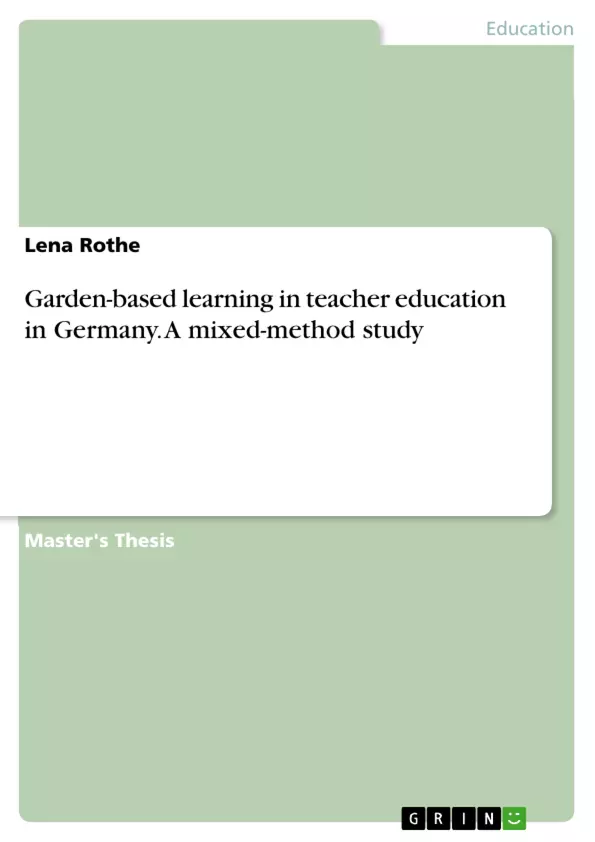This study focuses on achieving an in-depth understanding of teacher educators' and teacher students' perspectives on garden-based learning in the teacher education program in several universities in Germany.
The theoretical framework is based on three theories. Garden-based learning, as proposed by Gaylie (2009), focuses on the role of the garden in teacher education as environment, community, and transformation. As suggested by Meek and Tarlau (2016), critical food system education approaches food system change by helping students realise their potential in structurally transforming the food system through collective action. Actor network theory analyses the human-nature relationship by not privileging one over the other.
A mixed method approach was applied, incorporating semi-structured interviews with eight teacher educators and an online survey with six teacher educators and 81 teacher students from five German universities. This methodological approach enabled an in-depth and holistic understanding of their perspectives of the learning garden and food system education to emerge. The collected data were thematically analysed, and codes were generated inductively and deductively.
The results indicate that receiving support from various stakeholders is essential for teacher educators, and that the motivation of the teacher educators is indispensable for initiating a learning garden in the teacher education programme. The teacher educators that started learning gardens mostly have previous experiences related to garden-based learning. The teacher students and teacher educators perceived the learning garden as a place for experiential learning, where the traditional student-teacher relationship can be challenged. According to teacher students, learning outcomes such as social competency, conscientiousness, self-efficacy, and action competency could be developed in the learning garden. It was found that teacher educators did not consider food system education in learning gardens to a great extent. Moreover, teacher students and teacher educators both perceive the learning garden as contributing to a more sustainable food system through a more sustainable diet and consumption pattern.
Inhaltsverzeichnis (Table of Contents)
This text does not contain a table of contents. Please refer to the original document for more information.
Zielsetzung und Themenschwerpunkte (Objectives and Key Themes)
This text does not provide an explicit statement of objectives or themes. However, based on the content, it appears to focus on a specific topic or concept related to the number 7878. Further analysis is needed to identify the precise aims and themes of this text.
Zusammenfassung der Kapitel (Chapter Summaries)
This text does not have chapters or sections. Therefore, it is not possible to provide chapter summaries.
Schlüsselwörter (Keywords)
Based on the content, the primary keyword appears to be "7878." Further research is needed to identify additional keywords or related concepts.
- Quote paper
- Lena Rothe (Author), 2022, Garden-based learning in teacher education in Germany. A mixed-method study, Munich, GRIN Verlag, https://www.grin.com/document/1415414



